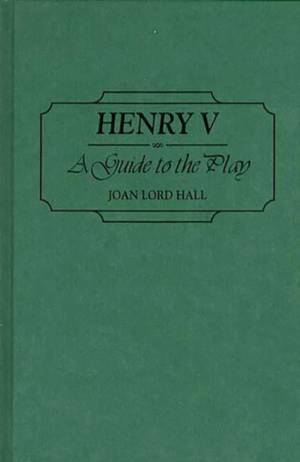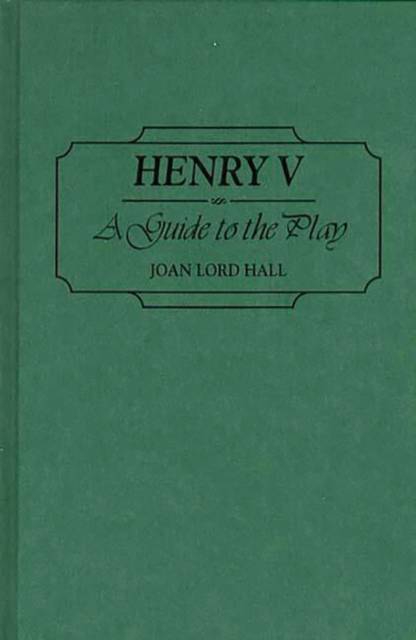
- Retrait gratuit dans votre magasin Club
- 7.000.000 titres dans notre catalogue
- Payer en toute sécurité
- Toujours un magasin près de chez vous
- Retrait gratuit dans votre magasin Club
- 7.000.0000 titres dans notre catalogue
- Payer en toute sécurité
- Toujours un magasin près de chez vous
118,95 €
+ 237 points
Description
Henry V is a complex and challenging Shakespearean play that rewards detailed study. While few critics count it among Shakespeare's greatest works, the play is almost always successful in the theater. Compared to some of Shakespeare's more critically esteemed works, Henry V is more accessible to students, who find it easier to grasp as a text inviting lively discussion. In the early 1990's its popularity surged with the release of Kenneth Branagh's film version (1989), a hit with audiences on both sides of the Atlantic. This reference book is a comprehensive introductory guide to virtually all aspects of the play.
The volume begins with a full overview of the textual history of the play and its historical and cultural contexts, with special emphasis on how it contributed to the debate on kingship and authority in the late sixteenth century. The book then concentrates extensively on the play's dramatic structure, its plots, its patterns of language, and its development of characters. Central to this discussion is the ambiguous presentation of Henry V, a public figure who may be interpreted as both a heroic king and a Machiavellian leader. The next chapter examines the play's significant themes: order and chaos, war, and kingship. The volume then evaluates different critical approaches to the play, so that the reader may understand how critics have responded to it over time. The final chapter carefully analyzes several theatrical, film, and video productions of Henry V. A closing bibliographical essay outlines the most important critical works on this enduring and provocative drama.Spécifications
Parties prenantes
- Auteur(s) :
- Editeur:
Contenu
- Nombre de pages :
- 208
- Langue:
- Anglais
- Collection :
Caractéristiques
- EAN:
- 9780313297083
- Date de parution :
- 28-02-97
- Format:
- Livre relié
- Format numérique:
- Genaaid
- Dimensions :
- 161 mm x 243 mm
- Poids :
- 471 g

Les avis
Nous publions uniquement les avis qui respectent les conditions requises. Consultez nos conditions pour les avis.






